Global
Greta Thunberg’s Aid Boat to Gaza Intercepted by Israeli Forces

Famous climate activist Greta Thunberg was on board a boat trying to deliver aid to Gaza — but Israeli forces stopped it before it could reach its destination.
The boat, called the Madleen, left Sicily, Italy, on June 1 with around 12 peace and climate activists on board. The group was part of the Freedom Flotilla Coalition, a movement trying to bring food, medicine, and baby formula to Gaza — and to protest Israel’s blockade of the region.
But late Sunday, as the boat moved through the Mediterranean Sea, Israeli forces intercepted it, stopping it from reaching the Gaza Strip.
“Greta Thunberg is safe and in good spirits,” said Israel’s Foreign Ministry. They also shared a photo of Greta in a lifejacket, being offered food by an Israeli official.
However, the activists say this was not a peaceful stop. The Freedom Flotilla Coalition accused Israel of “kidnapping” the passengers and “illegally boarding” their civilian ship. They say their aid was confiscated, and the crew was taken against their will.
Why Was the Boat Blocked?
Israeli Defense Minister Yoav Gallant said they would not allow anyone to break the naval blockade on Gaza. He accused the group — including Greta — of being Hamas supporters and warned:
“You will not reach Gaza.”
The boat was reportedly around 160 nautical miles from Gaza when Israel jammed its communication signals, making it difficult for the group to stay in contact with the outside world.
Who Else Was Onboard?
Alongside Greta was Rima Hassan, a French politician of Palestinian background, who has been openly critical of Israel’s policies. The boat also carried other human rights and climate activists. Actor Liam Cunningham (from Game of Thrones) helped prepare the boat but didn’t sail with it.
Why It Matters
Gaza has been under a strict blockade for months, with very limited aid allowed in. Activists say people in Gaza are starving and desperate, and humanitarian groups like Save the Children say they haven’t been able to deliver any aid since March 2.
While Israel claims it’s letting in aid through controlled routes, reports say people have died while trying to reach those distribution sites.
Greta Thunberg has not yet made a public statement, but her supporters say she joined the voyage to stand against injustice — not for politics, but for peace.
Global
Fire in the Skies: Air India Flight 171 Crash Sparks Outrage and Mystery in Ahmedabad

A devastating nightmare unfolded near Ahmedabad on June 12, 2025, when Air India Flight 171, a Boeing 787 Dreamliner, plummeted from the skies moments after takeoff in a fiery crash that shook the nation to its core. The horror was almost unimaginable—both engines mysteriously shut down due to the fuel cutoff switches being flipped, turning the aircraft into a death trap with 260 souls caught in the inferno, including terrified passengers, crew, and innocent people on the ground. Only one miraculous survivor, a British passenger named Vishwash Kumar Ramesh, escaped the cataclysm by a hair’s breadth.
Cockpit voice recorders revealed a frantic, chilling exchange between the pilots in those final moments: confusion reigned as one demanded to know why the fuel had been cut off. The mystery deepens as investigators grapple with whether human error or a bizarre technical glitch triggered the fatal switch, despite the plane being fully serviced and cleared for flight.
The carnage intensified as the doomed aircraft crashed into the BJ Medical College and Hospital hostel, turning a tragic aviation disaster into a citywide catastrophe, stealing the life of a former Gujarat Chief Minister among the victims and sparking outrage and grief across India.
This catastrophic crash has sent shockwaves through the global aviation community, sparking fierce debates over pilot training, cockpit protocols, and aircraft safety measures. Air India faces intense scrutiny as families demand answers for the devastating loss, and investigators race against time to piece together how a routine flight turned into one of the deadliest crashes in recent memory. The haunting question remains: how did a perfect storm of error and fate bring down this dreamliner in flames?
Global
Iran Moves to Close Strait of Hormuz Following U.S. Airstrikes, Raising Global Energy Alarm
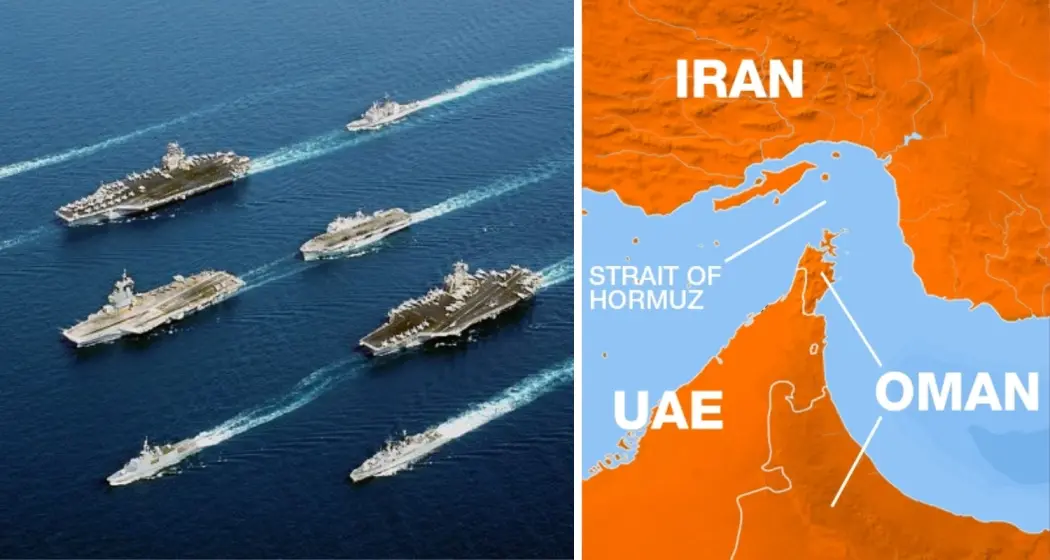
In a dramatic escalation of tensions in the Middle East, Iran’s parliament has approved a measure to close the Strait of Hormuz, the vital maritime chokepoint through which nearly 20% of the world’s oil and gas shipments pass daily. The decision comes in direct response to recent U.S. airstrikes on Iranian nuclear facilities, marking a significant intensification of the conflict.
The final authority to implement the closure rests with Iran’s Supreme National Security Council, which is expected to make a decisive announcement soon. Iranian lawmakers and Revolutionary Guard commanders have indicated that the closure will be executed “whenever deemed necessary,” signaling Tehran’s readiness to disrupt global energy flows if pressured further.
The Strait of Hormuz, located between Oman and Iran, is only 21 miles wide at its narrowest point, with a shipping channel just 2 miles wide. It connects the Persian Gulf to the Gulf of Oman and the Arabian Sea, serving as a critical artery for the export of crude oil from major producers including Saudi Arabia, Iraq, the UAE, Kuwait, and Iran itself.
U.S. Secretary of State Marco Rubio urged China on Sunday to dissuade Iran from closing the strait, emphasizing that such a move would be “economic self-destruction” for Tehran and have far-reaching consequences for global markets. Rubio warned that closing the strait would represent a serious escalation, prompting a strong response from the United States and its allies.
The potential closure has sent shockwaves through global energy markets, with experts warning of sharp increases in oil prices and disruptions to supply chains. India, a major crude importer that relies on the strait for about 2 million barrels per day, is closely monitoring the situation and preparing contingency plans. While India has diversified its energy sources, a closure could still lead to short-term price spikes and inflationary pressures.
Iran’s move to block the Strait of Hormuz is a high-stakes gamble that could escalate the Middle East conflict into a broader crisis, affecting economies worldwide. The international community remains watchful as the Supreme National Security Council weighs its options amid mounting pressure.
Global
How 30 Tomahawk Missiles and Bunker-Buster Bombs Obliterated Iran’s Nuclear Sites in Historic U.S. Strike
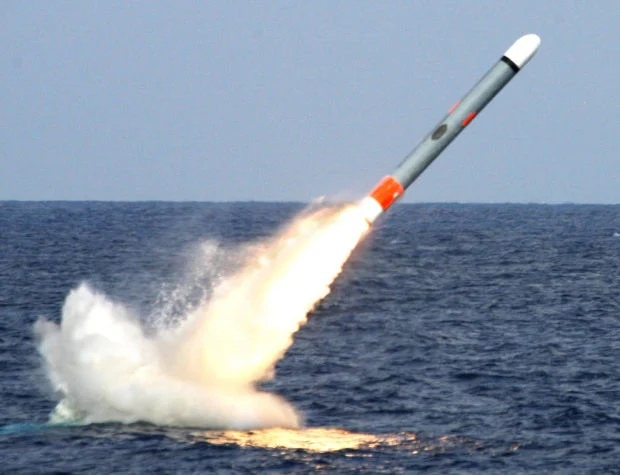
In a dramatic escalation of the Middle East conflict, the United States launched a meticulously planned and highly coordinated airstrike on June 21, 2025, targeting three of Iran’s most sensitive nuclear facilities: Fordow, Natanz, and Isfahan. This operation marked the first direct U.S. military strike inside Iran in decades and involved the combined use of six B-2 stealth bombers dropping Massive Ordnance Penetrator (MOP) bunker-buster bombs and 30 Tomahawk cruise missiles fired from submarines positioned 400 miles off the Iranian coast.
What Happened?
President Donald Trump announced the strikes as a “spectacular military success” and claimed that Iran’s key nuclear enrichment sites had been “completely and totally obliterated.” The Fordow site, deeply embedded inside a mountain and heavily fortified, was the primary target of the B-2 bombers, which dropped six 30,000-pound bunker-buster bombs designed to penetrate and destroy underground facilities. Meanwhile, 30 Tomahawk missiles — long-range, subsonic cruise missiles known for their precision — were launched from U.S. Navy submarines to strike the Natanz and Isfahan sites.
Trump emphasized the unprecedented nature of the operation, stating on Truth Social, “A full payload of BOMBS was dropped on the primary site, Fordow. Fordow is gone.” He also reassured that all U.S. aircraft had safely exited Iranian airspace following the mission, underscoring the operation’s success and the skill of American forces.
Understanding the Tomahawk Missile
The Tomahawk Land Attack Missile (TLAM) is a cornerstone of U.S. precision strike capability. Measuring 18.3 feet in length and weighing approximately 3,200 pounds (4,400 pounds with booster), each missile carries a 1,000-pound conventional warhead. Guided by GPS, inertial navigation, and terrain contour matching, Tomahawks can strike targets with an accuracy within 10 meters from distances up to 1,500 miles. Their stealthy, low-flying approach makes them difficult to detect and intercept, allowing them to penetrate sophisticated air defenses.
First used in combat during the 1991 Gulf War, Tomahawks have become a preferred weapon for surgical strikes against high-value, heavily defended targets. Their use in this operation allowed the U.S. to hit multiple sites simultaneously without risking manned aircraft in heavily contested airspace.
Why These Targets?
-
Fordow: Located near Qom, Fordow is Iran’s most secure uranium enrichment facility, built deep inside a mountain to withstand attacks. Destroying it was crucial to delaying Iran’s ability to produce weapons-grade uranium.
-
Natanz: Iran’s primary uranium enrichment plant, Natanz has been the focus of previous Israeli strikes and sabotage efforts. It remains central to Iran’s nuclear program.
-
Isfahan: This site houses uranium conversion and research facilities, including production of near-bomb-grade uranium, making it a key node in Iran’s nuclear infrastructure.
Strategic and Political Implications
The strikes represent a historic shift in U.S. policy, moving from indirect support of Israel’s campaign to direct military action against Iran. President Trump’s decision came after weeks of deliberation and amid escalating Israeli airstrikes on Iranian targets. The operation sends a clear message of U.S. resolve to prevent Iran from developing nuclear weapons.
While Iran confirmed that some sites, including Fordow, were attacked, it denied any serious damage or radiation risks. Iranian officials have vowed retaliation, raising fears of a wider regional conflict. The International Atomic Energy Agency (IAEA) has warned about the dangers of attacks on nuclear facilities, particularly the risk of radioactive contamination, though experts have stated that the recent strikes are unlikely to cause a Chernobyl-like disaster.
What Comes Next?
The strikes are likely to provoke Iranian retaliation, potentially through missile attacks on Israeli cities and U.S. military bases in the region, proxy militia actions, cyberattacks, and disruptions to global energy supplies. The U.S. and its allies remain on high alert, anticipating a complex and prolonged conflict.
President Trump has framed the operation as a last warning, stating that if peace does not come quickly, the U.S. will strike additional targets with “precision, speed and skill.” The world watches anxiously as the Middle East stands on the edge of a potentially wider war.
-

 Explainers2 months ago
Explainers2 months agoWhat Blunder Led to American Airlines Flight Diverting to Rome?
-

 Trending Now2 months ago
Trending Now2 months agoBillie Elish and her boy friend Nat Wolf Balcony Kiss – pictures go viral
-
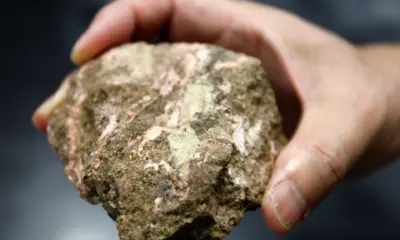
 Explainers2 months ago
Explainers2 months agoWhy the U.S. Needs Rare Earth Metals from China
-
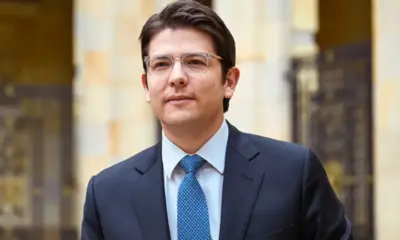
 Global2 months ago
Global2 months agoColombian Presidential Candidate Miguel Uribe Turbay Shot at Rally in Bogotá
-

 Trending Now2 months ago
Trending Now2 months agoReporter Shot by Rubber Bullet on Live TV During Immigration Protests in L.A.
-

 Explainers2 months ago
Explainers2 months agoWhat Went Wrong? Major Egg Recall Sparks Nationwide Salmonella Outbreak
-
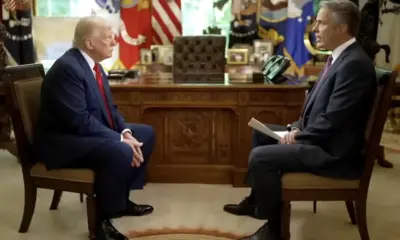
 Trending Now2 months ago
Trending Now2 months agoWhy ABC News Suspended Terry Moran After His ‘Hater’ Post About Trump and Stephen Miller
-
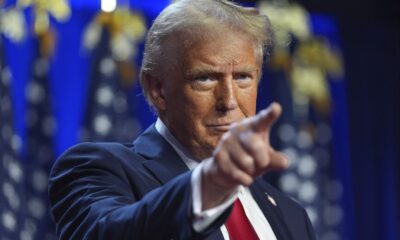
 Global2 months ago
Global2 months agoTrump Finalizes China Trade Deal, Tariffs Soar to 55%
